-
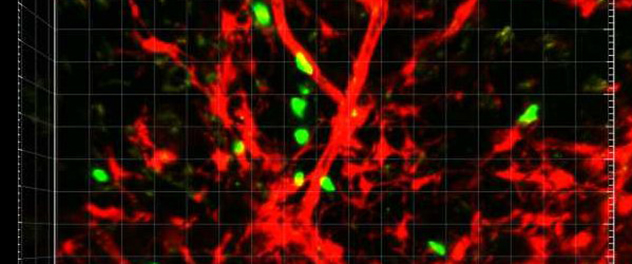
Real time visualization of cell migration
Advanced microscopy enables researchers to analyze the complex behaviors of immune cells as they move directly within their native tissues. Vasculature and fibroblasts appear red; CD8+ T cells appear green.
-
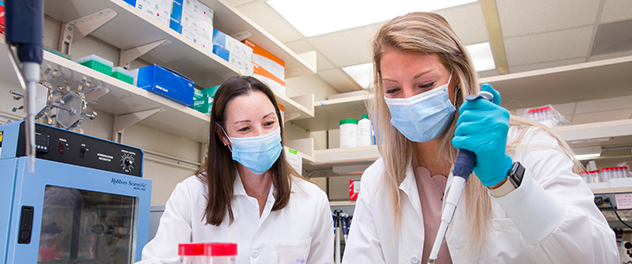
Molecular signaling pathways
Biological assays are conducted to measure changes in the expression of genes and proteins within aged immune cells.
-
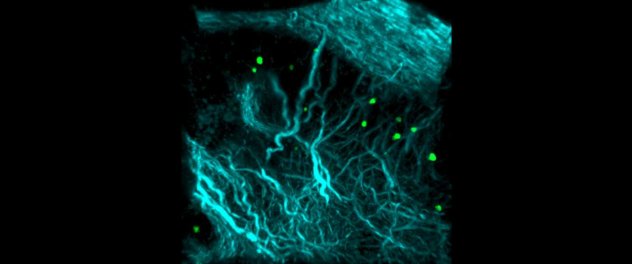
Age- and cancer-associated fibrosis
The tremendous impact of tissue fibrosis on the movement and function of immune cells can be studied with sophisticated models. Collagen appears cyan, B cells appear green.
-
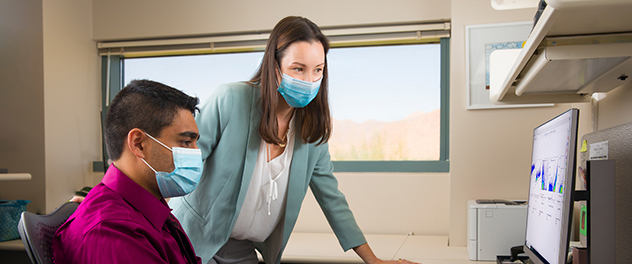
Immune cell profiling
Multiparameter analysis of the complex immune environment reveals the changing distribution of immune cell subsets with age and disease.
-
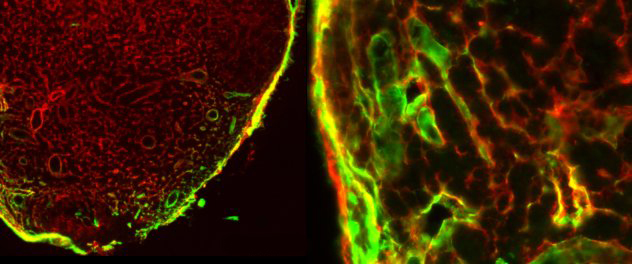
Organ architecture and spatial organization
Aging alters the organization of lymphoid tissues, which has consequences on the response of immune cells. Fibroblast network appears red, collagen appears green.
Overview
The Aging and Immune Restoration (AIR) Laboratory at Mayo Clinic investigates the biological mechanisms of the aged immune system. An understanding of age-associated immune system changes will inform the development of strategies that improve elderly immune function.
The segment of the population over the age of 65 years old continues to expand rapidly, as advances in medicine and society have greatly improved life expectancy. Unfortunately, this has not translated into an increase in health span — the number of years an individual can be active, independent and in relatively good health. While age-related decline can be associated with environmental factors, it is also evident that aging causes intrinsic biological changes. Among these changes are reduced and delayed responses by the immune system, which contributes to an increased risk of disease and death.
Impaired function of the aged immune response has been well described, but the cellular and molecular pathways that drive these changes are poorly understood. Interestingly, many immune components are present in the aged immune system and appear to function adequately when studied in isolation. However, systemic failures often appear when these components attempt to work together. Thus, the AIR research team studies the aged immune system as it operates within the setting of whole tissues, organs and organisms.
As aging impacts virtually all facets of biology and medicine, the AIR lab works collaboratively with other research groups to study the aged immune response to infectious disease, autoimmunity and cancer. Motivated by the values of Mayo Clinic, the goal of our research is to develop strategies for improving immune outcomes by studying the underlying biological mechanisms of aging. The AIR lab is also a positive and diverse environment to foster the training of students and scientists.